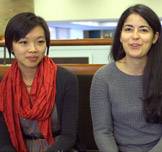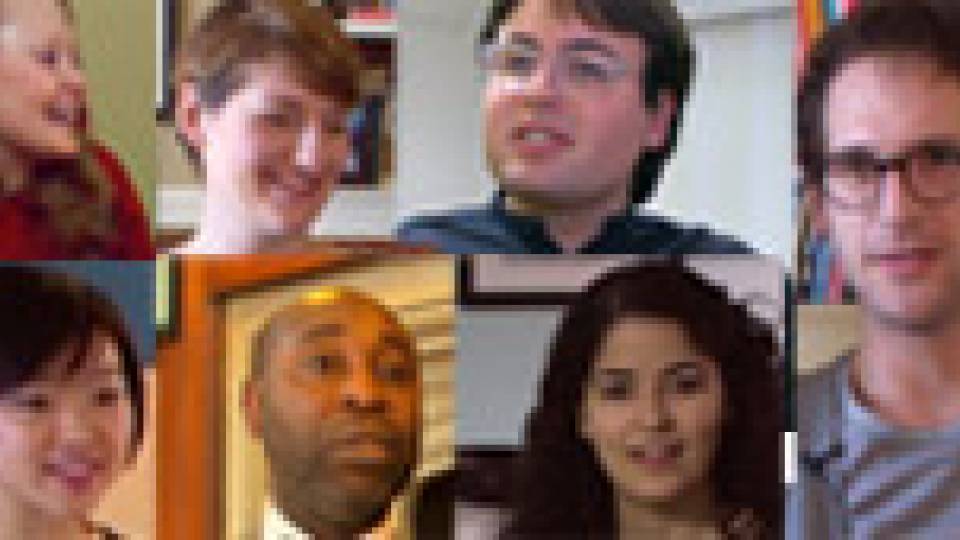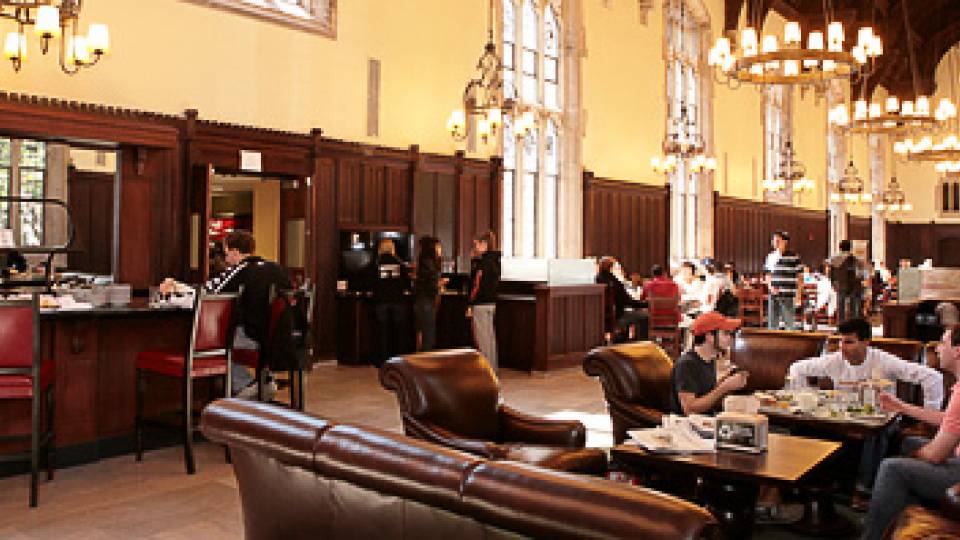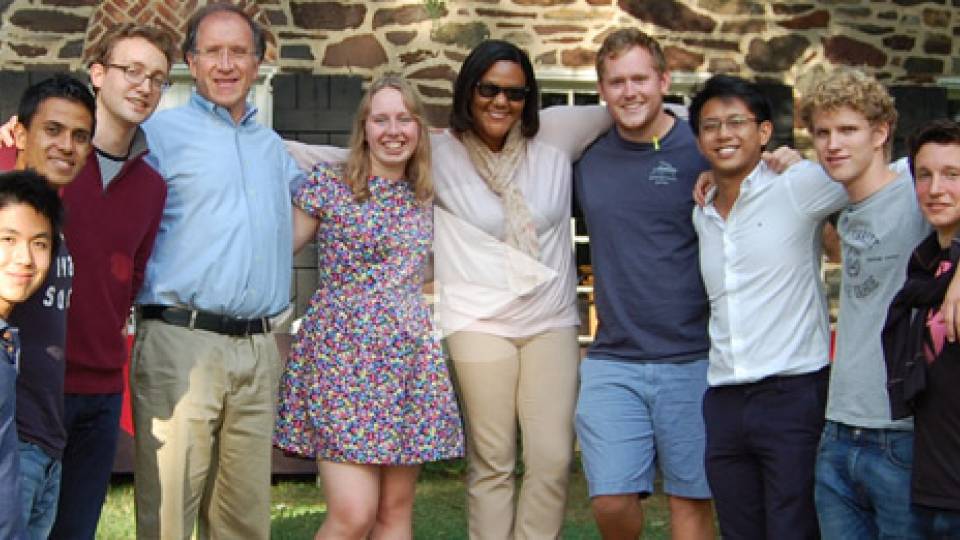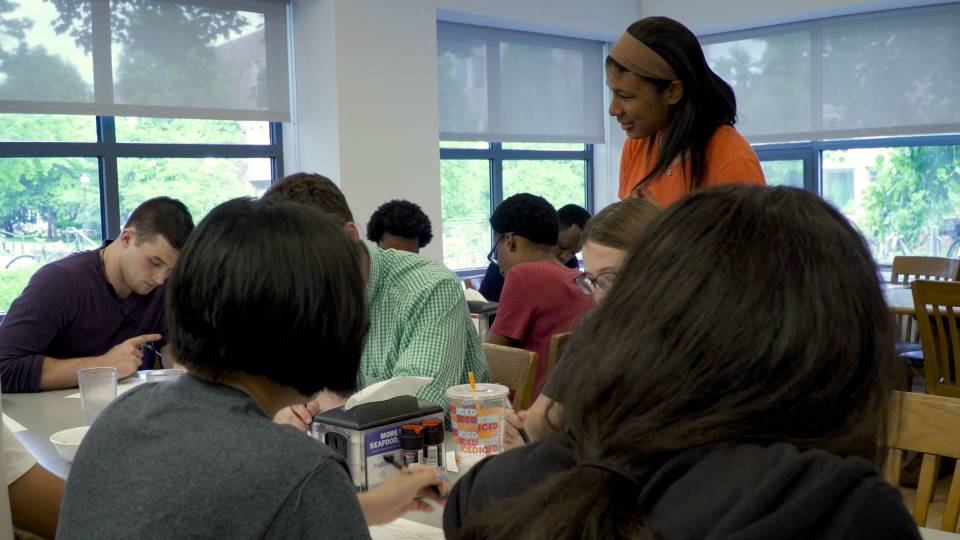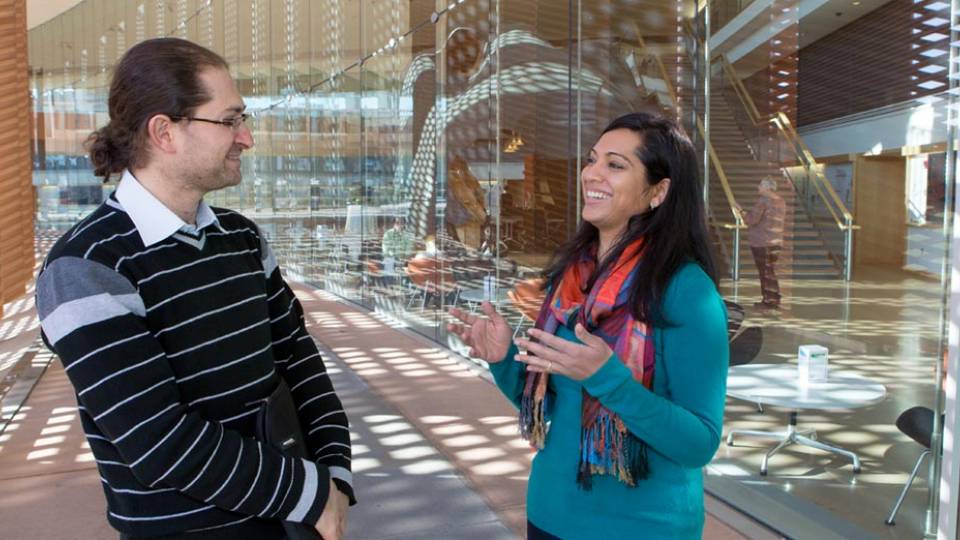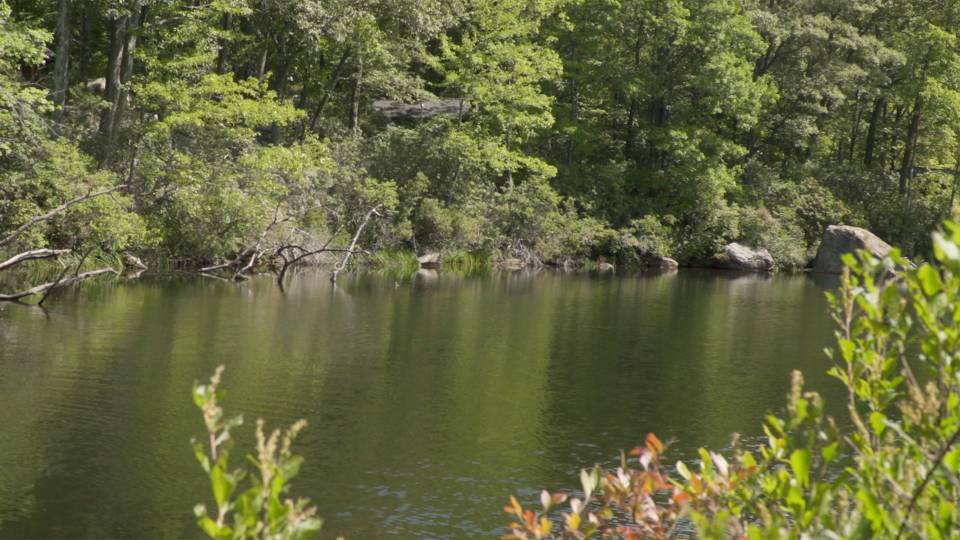What is a resident graduate student, or RGS? At Princeton, resident graduate students are part of core advising groups within the six undergraduate residential colleges, helping to create the vibrant intellectual and social life within each college's network of students, faculty fellows and staff.
The resident graduate students live in a residential college suite, take meals in the dining hall, and spend about 10 hours a week with a group of advisees ("zees") through activities such as bike trips, whitewater rafting, film series, candle-making, and snack and study breaks.
They're also able to share their experiences and advice on academic topics, such as picking classes and how to get involved with research.
"Being an RGS adds a whole new dimension to my life, whereas normally during the day I'm just doing my work, focusing on my thesis," said Alex Piotrowski, a graduate student in chemical and biological engineering. "It's nice to get to know people who are doing something totally different, be inspired by younger students, and, hopefully, be able to give back to the community some of my experiences that I've had being an older student."
